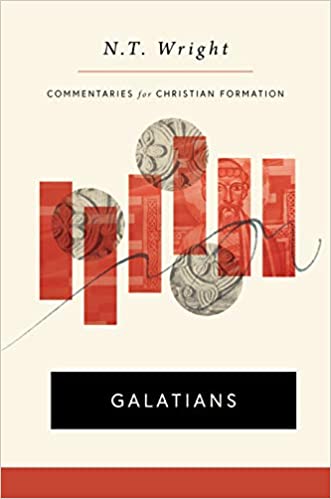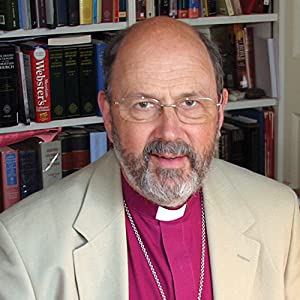What follows here is a long running Q.A. with Tom about his new Galatians commentary. Buckle up as it will be an exciting ride.
Q. Let’s talk for a minute about spiritual formation, a buzz word phrase if there ever was one. One of the things I have found so puzzling is the attempt to place spiritual formation in one category, and profound study of God’s word in another. Sometimes it even sounds like a sort of gnostic de-historicizing of the Gospel to me. People talk, at least here in America, about devotional study of God’s word on the one hand and serious academic study on the other. The former you do in your quiet time, the latter you do in your study or in a course etc. Now it seems to me that Paul would not have been happy about these sorts of bifurcations. I believe the Word of God is living and active and does the forming of us, though of course that is not the only way it happens. Deep interaction with God’s Word is a type of spiritual formation, including in the original languages, by reading good commentaries etc. Yes, we need to learn to apply the Word, as a word on target to various aspects of our lives, but we must understand what we are applying first. I wonder if you share some of my frustrations with the attempt to make spiritual formation a separate field of study, or discipline at the expense of cutting to the application chase too quickly? I always thought of hermeneutics not as spiritual formation, but rather the basic rules of interpreting the text, but now people are lumping it together with application and spiritual formation.
A. Yes indeed – and that’s one of the reasons I was happy to have a crack at this commentary within Eerdmans new series. What we’re seeing, of course, is the long outworking of the split culture of the Enlightenment, including the split within the Enlightenment world between rationalism and romanticism. In fact I think that’s particularly true in America (not so much here): it’s partly the left-brain/right-brain thing, partly the victory in Myers-Briggs terms of the ISTJ over the ENFP, and so on. This has played out in the US in terms of ‘seminaries/div schools’ versus ‘departments of religion’, though of course there are cross-overs within that as well. For me, it’s a matter of the fourfold amor Dei – loving God with heart, mind, soul and strength. There has been MASSIVE resistance in many quarters of the ‘spiritual direction’ or ‘renewal’ world to bringing the mind into the equation, not least because those who have insisted on the ‘mind’ have often done so in order to drive a rationalist coach and horses through any sense that this stuff might actually matter at a deeply personal level. Other divisions come in here too . . . ‘getting people to heaven’ versus ‘doing social work’, and so on. This could all be mapped I guess, though the terrain shifts this way and that. But I think you and I are pretty much on the same page with this.













